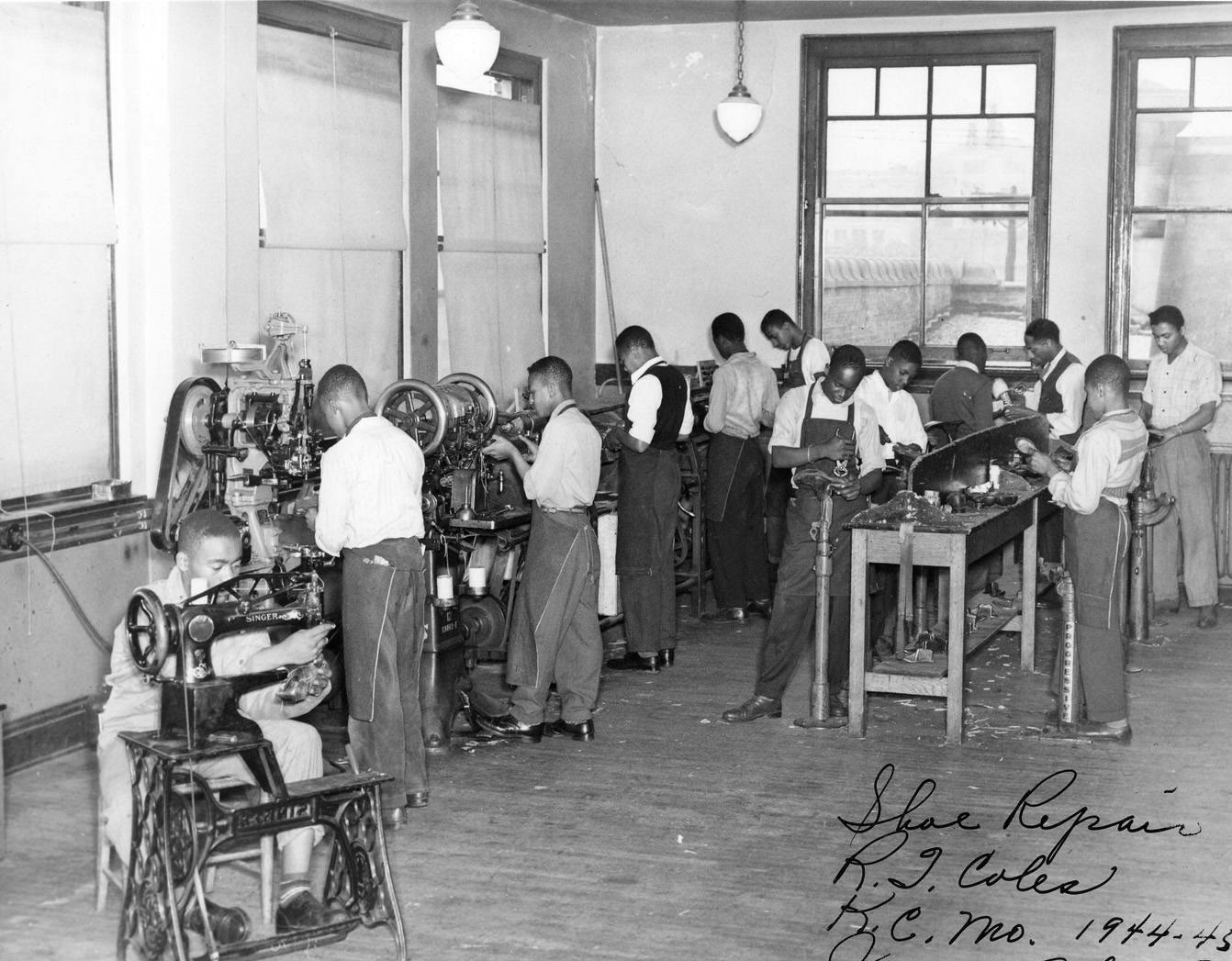Earl D. Thomas
As a teacher, school administrator, public official, and civic leader, Earl D. Thomas forged a long and distinguished record of achievement. Although his efforts were focused largely on the betterment of Kansas City’s African American community, the city as a whole benefited from his activities in a wide variety of fields.
Earl Davis Thomas was born in Kansas City, Kansas, on November 24, 1897. After graduating from Sumner High School, he entered the University of Chicago, where he earned B.A. and M.A. degrees. He later earned a doctorate in education from the University of Kansas.

Thomas spent most of his career in education. He was a teacher and administrator in the Kansas City school district from 1928 to 1963. A craftsman who built his own house on West Paseo Boulevard, Thomas taught industrial arts and inspired young people who were unable to attend college to learn a trade. In the mid-1930s, he conceived and developed a plan to establish a vocational school in Kansas City. Thomas presented his idea to the Board of Education and shepherded it through to completion. When the R. T. Coles Junior and Vocational High School opened, Thomas was the school’s first principal. During World War II, he developed a program, sponsored by the Board of Education and the federal government, to train African American women in the use of power machines in the garment industry. He was appointed principal of Lincoln High School in 1947, when Lincoln was the only secondary school black students were allowed to attend.
Thomas retired from Lincoln High in 1963 to run for the City Council. Though not a politician, Thomas was prevailed upon to run as a candidate for councilman-at-large from the third district. Bruce R. Watkins also ran for election and both candidates won. They became the first African Americans to serve on the City Council and Thomas the first black candidate elected at-large in the city’s history. He served two four-year terms, retiring from the Council in 1971.
Thomas was very active in the community and participated in numerous organizations. He served as president of the Kansas City Urban League and was a charter member of the K.C. Human Rights Commission. He served on the boards of the Greater Kansas City Mental Health Foundation, Family and Children’s Services, and the Cancer Society. He also participated in a number of national organizations, including the National Council of Boy Scouts of America, the National Council of YMCAs, the National Association of the Advancement of Colored People (NAACP), and was a life member of the National PTA.
Thomas was an early advocate for rebuilding of blighted areas in the city. For many years he was a member of the National Association of Home Builders and involved in rehabilitating and refurbishing apartment buildings along The Paseo. In the early 1960s, he was the driving force behind the formation of a group of community leaders that became the Lincoln Redevelopment Corporation. The group’s initial project was the construction of Lincoln Gardens, a 152-unit apartment complex for low- and moderate-income families, located at 22nd and Vine streets. (The complex was demolished in the late 1990s.)
Thomas was a lifelong member of St. Augustine’s Church in Kansas City, where he served on the vestry and was superintendent of the Sunday School. In 1964 he was awarded the Bishop’s Medal from the Episcopal Diocese of West Missouri. He was one of the church leaders who planned the building of St. Augustine’s distinctive round edifice at 28th Street and Benton Boulevard.
Earl Thomas died on July 15, 1985, after a prolonged illness.
This work is licensed under a Creative Commons Attribution-NonCommercial-NoDerivatives 4.0 International License.
